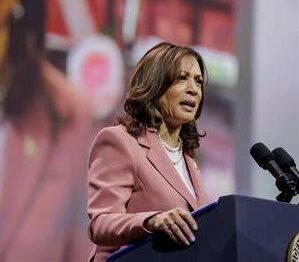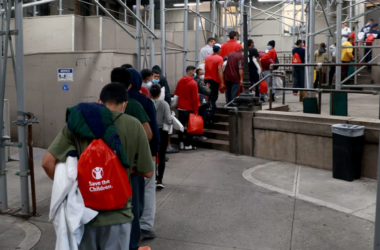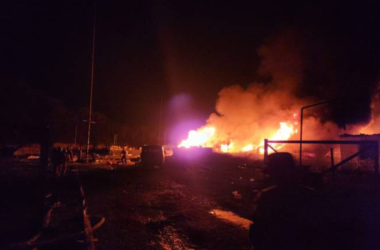Vice President Kamala Harris once described Jussie Smollett, the actor at the center of a notorious hate crime hoax, as a victim of an attempted “modern day lynching.” This statement, made in 2019, remains on her social media even after Smollett’s criminal conviction for orchestrating the fake attack.
Jussie Smollett claimed that two masked men attacked him, doused him with bleach, placed a rope around his neck, and shouted, “This is MAGA country!” in downtown Chicago during the harsh winter of 2019. At the time, Harris tweeted her support for Smollett, calling him “one of the kindest, most gentle human beings I know” and decrying the incident as an “attempted modern day lynching.”
When evidence later surfaced that Smollett had staged the attack, Harris expressed disappointment, calling the situation “sad, frustrating and disappointing.” Retired Chicago Police Department Chief of Detectives Eugene Roy criticized Harris’ initial reaction as a “rush to judgment” and a “hasty decision before all the facts are known.”
Roy, who has over 30 years of experience in law enforcement, emphasized the importance of thorough and impartial investigations over quick public statements, particularly from government officials. “It’s one thing to express your support for a friend,” he said. “It’s another thing to use your platform as a government official to prejudge a case before it’s played out.”
Smollett’s conviction was based on evidence that he had orchestrated the fake hate crime with the help of two brothers, Abimbola and Olabinjo Osundairo. The trial included testimony and corroborating evidence such as phone records, video surveillance, and text messages. Smollett was found guilty on five counts of disorderly conduct and sentenced to 150 days in jail, along with 30 months of probation and fines.
Despite his conviction, Smollett has appealed the case to the Illinois Supreme Court, arguing that his trial violated protections against double jeopardy. His legal team contends that a previous agreement with the Cook County State’s Attorney’s Office should have precluded the 2021 trial.
Harris was not alone in her initial support for Smollett. President Joe Biden, then a Democratic primary rival, also condemned the purported attack in a tweet that remains online. Both Harris and Biden’s early reactions have been scrutinized as examples of premature judgment.
Eugene Roy highlighted the potential impact of such hasty statements on public perception of the justice system. He cautioned that voters should consider the judgment displayed by political candidates when evaluating their suitability for office.
“People see who has made hasty judgments about controversial issues and, hopefully, they keep that in mind when they evaluate the merits of the candidates,” Roy said.








